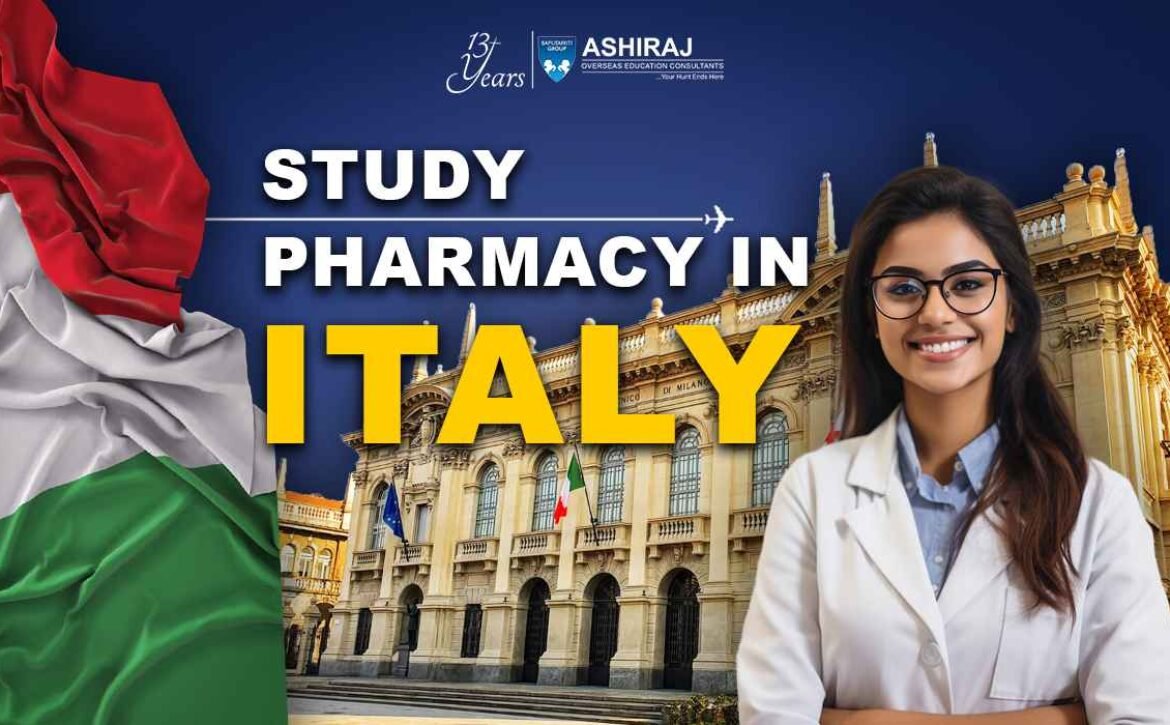
Pharmacy in Italy
Pharmacy in Italy encompasses a rich tapestry of tradition, innovation, and stringent regulations. As an integral component of the Italian healthcare system, pharmacies in Italy serve not only as dispensaries of medications but also as hubs of healthcare advice and community support. Rooted in a history that dates back to ancient times, Italian pharmacies have evolved into modern establishments that blend traditional remedies with cutting-edge pharmaceutical advancements. In Italy, pharmacists play a pivotal role in ensuring the safe and effective use of medications, offering personalized guidance to patients and collaborating closely with healthcare professionals.
The landscape of pharmacy in Italy is characterized by a commitment to quality, accessibility, and patient-centered care. From urban centers to remote villages, pharmacies dot the Italian peninsula, providing essential services to individuals of all backgrounds. Furthermore, the integration of technology in Italian pharmacies has streamlined processes, enhancing efficiency without compromising the personalized touch for which Italian healthcare is renowned. In navigating the complexities of Italy’s healthcare landscape, understanding the role and nuances of pharmacy is crucial, underscoring its significance in safeguarding public health and promoting well-being.
Why to Study Pharmacy in Italy?
- Historical Significance: Italy boasts a rich history in pharmacy, offering students the opportunity to study in a country with a deep-rooted tradition in pharmaceutical sciences.
- Quality Education: Italian universities are renowned for their high-quality education in pharmacy, providing comprehensive programs that blend theoretical knowledge with practical skills.
- International Recognition: A pharmacy degree from Italy holds international recognition, facilitating career opportunities worldwide and ensuring graduates are competitive in the global job market.
- Cultural Immersion: Studying pharmacy in Italy allows students to immerse themselves in the country’s vibrant culture, art, and cuisine, enhancing their overall educational experience.
- Cutting-Edge Research: Italy is at the forefront of pharmaceutical research, providing students with access to state-of-the-art facilities and opportunities to engage in groundbreaking research initiatives.
- Clinical Experience: Students gain valuable clinical experience through internships and practical training in Italy’s diverse healthcare settings, preparing them for real-world challenges in pharmacy practice.
- Multilingual Environment: Many pharmacy programs in Italy are conducted in English, offering international students the chance to study in a multilingual environment and develop language skills that are invaluable in today’s globalized world.
- Networking Opportunities: Studying pharmacy in Italy allows students to network with professionals and experts in the field, fostering connections that can support their career advancement.
- Career Prospects: With Italy’s growing healthcare sector and emphasis on pharmaceutical innovation, graduates have promising career prospects in various sectors, including community pharmacy, research, industry, and academia.
- Lifestyle and Location: Italy’s picturesque landscapes, vibrant cities, and Mediterranean climate provide an exceptional living environment for students pursuing their pharmacy studies, contributing to a well-rounded and enriching educational journey.
Top Universities to Study Pharmacy in Italy
University | QS World University Ranking 2023 | Type of University | Average Annual Fees (EUR) | Programs Offered |
University of Milan | 51-100 | Public | 2,000 – 4,000 | Pharmacy, Pharmaceutical Sciences, Pharmacology |
University of Padua | 101-150 | Public | 1,500 – 3,500 | Pharmacy, Pharmaceutical Chemistry, Pharmacology |
University of Bologna | 151-200 | Public | 1,800 – 3,200 | Pharmacy, Pharmaceutical Technology, Pharmacoeconomics |
University of Naples | 201-250 | Public | 1,400 – 3,000 | Pharmacy, Clinical Pharmacy, Pharmacotherapy |
Sapienza University of Rome | 251-300 | Public | 1,600 – 3,400 | Pharmacy, Industrial Pharmacy, Pharmacognosy |
- University of Milan: Renowned for its research excellence, the University of Milan offers comprehensive programs in pharmacy and related fields at an affordable cost.
- University of Padua: With a strong focus on interdisciplinary studies, the University of Padua provides diverse programs in pharmacy, attracting students from around the world.
- University of Bologna: As one of the oldest universities in the world, the University of Bologna offers a rich academic environment for pharmacy students, coupled with affordable tuition fees.
- University of Naples: Located in the historical city of Naples, this university offers specialized programs in pharmacy, preparing students for careers in various pharmaceutical sectors.
- Sapienza University of Rome: With a wide range of pharmacy-related programs and a prime location in Italy’s capital, Sapienza University of Rome offers an enriching educational experience at a competitive cost.
Course Curriculum for Pharmacy in Italy
Course Curriculum of Pharmacy in Italy
- Foundational Sciences: The curriculum typically begins with courses in basic sciences such as chemistry, biology, and physics, laying the groundwork for understanding pharmaceutical principles.
- Pharmaceutical Sciences: Students delve into subjects like pharmacology, pharmaceutics, and pharmacokinetics, gaining insights into drug actions, formulations, and delivery systems.
- Clinical Pharmacy: Emphasis is placed on the clinical application of pharmaceutical knowledge, with courses covering patient care, drug therapy management, and medication counseling.
- Pharmacotherapy: Students learn about the treatment of diseases and disorders through medications, studying therapeutic classes, dosage regimens, and patient outcomes.
- Pharmacy Practice: Practical training is integrated into the curriculum through internships and experiential learning, allowing students to apply theoretical knowledge in real-world pharmacy settings.
- Regulatory Affairs: Courses focus on pharmaceutical regulations, quality control, and drug safety measures, ensuring students understand the legal and ethical aspects of pharmacy practice.
- Research Methodology: Students are trained in research methods and critical analysis, enabling them to contribute to pharmaceutical research and innovation.
- Electives and Specializations: Students have the opportunity to explore elective courses and specialize in areas such as industrial pharmacy, clinical research, or pharmacoeconomics, aligning their studies with their career interests.
The pharmacy curriculum in Italy is designed to provide students with a comprehensive understanding of pharmaceutical sciences and prepare them for diverse career paths in the field. With a focus on both theoretical knowledge and practical skills, pharmacy programs in Italy ensure graduates are well-equipped to contribute to the healthcare system and pharmaceutical industry.
Eligibility Criteria & Admission Requirements for MS in Pharmacy in Italy
Eligibility Criteria for Pharmacy in Italy
- Language Proficiency: Applicants must demonstrate proficiency in English or Italian through standardized tests such as IELTS or TOEFL. Minimum scores for IELTS are typically 6.0 to 7.0, and for TOEFL, scores range from 80 to 100.
- Standardized Tests: Some universities may require applicants to submit scores for standardized tests like GRE or GMAT. GRE scores of 300-320 or GMAT scores of 600-700 are commonly accepted.
- Academic Credentials: Applicants must provide academic certificates, including transcripts and diplomas, to demonstrate their educational background. These documents should be translated into English or Italian if not already in these languages.
- Passport & Student Visa: International students must possess a valid passport and obtain a student visa to study in Italy. The visa application process may require proof of acceptance into a pharmacy program and financial means to support oneself during the study period.
- Work Experience: While not always mandatory, some pharmacy programs may prefer applicants with relevant work experience in healthcare or pharmaceutical fields. This experience can strengthen the application and demonstrate practical knowledge in the field.
Test | Minimum Score |
IELTS | 6.0 – 7.0 |
TOEFL | 80 – 100 |
GRE | 300 – 320 |
GMAT | 600 – 700 |
Meeting these eligibility criteria ensures that candidates are prepared for the academic rigor of pharmacy programs in Italy and have the necessary language proficiency and academic background to succeed.
Documents Required for Studying Pharmacy in Italy
Documents Required For Pharmacy in Italy
- Passport: A valid passport is essential for international students applying to pharmacy programs in Italy. It serves as identification and proof of citizenship during the application process and throughout study.
- Letters of Recommendation (LOR): Applicants typically need to submit two or more letters of recommendation from academic or professional referees who can attest to their qualifications, character, and suitability for pharmacy studies.
- Statement of Purpose (SOP): An SOP outlines the applicant’s motivations, career goals, and reasons for choosing pharmacy as a field of study. It provides insights into the applicant’s aspirations and demonstrates their commitment to the program.
- Curriculum Vitae (CV): A comprehensive CV highlights the applicant’s educational background, work experience, achievements, and extracurricular activities. It offers a snapshot of the applicant’s academic and professional journey.
- Official High School Transcripts/Certificates: Transcripts and certificates from high school or secondary education institutions are required to verify academic qualifications and eligibility for higher education in pharmacy.
- Work Experience Certificate: If applicable, applicants may need to provide a certificate or letter from previous employers documenting their relevant work experience in healthcare or pharmaceutical fields.
- Proof of Financial Resources: International students must demonstrate sufficient financial resources to cover tuition fees, living expenses, and other costs associated with studying in Italy. This may include bank statements, sponsorship letters, or scholarship awards.
These documents play a crucial role in the application process for pharmacy programs in Italy, providing admissions committees with insights into the applicant’s academic background, professional experience, and suitability for the program.
Admission Process for Pharmacy in Italy
Admission Process for Pharmacy in Italy
- Research and Choose Universities: Research pharmacy programs offered by universities in Italy and choose the ones that best align with your academic and career goals.
- Check Eligibility Requirements: Ensure you meet the eligibility criteria, including language proficiency, standardized test scores, and academic qualifications.
- Gather Required Documents: Collect all necessary documents, such as transcripts, standardized test scores, letters of recommendation, statement of purpose, curriculum vitae, and proof of financial resources.
- Submit Application: Complete the university’s online application form and submit it along with the required documents before the application deadline.
- Pay Application Fee: Some universities may require payment of an application fee. Ensure you pay the fee as instructed to complete the application process.
- Wait for Admission Decision: After submitting your application, wait for the university to review your materials and notify you of their admission decision.
- Acceptance and Enrollment: If accepted, follow the university’s instructions to accept the offer of admission and complete the enrollment process.
- Apply for Student Visa: International students must apply for a student visa to study in Italy. Follow the visa application process and provide any additional documents required by the Italian consulate or embassy.
- Prepare for Arrival: Make necessary arrangements for accommodation, travel, and other logistics to ensure a smooth transition to studying pharmacy in Italy.
Following these steps diligently can streamline the admission process and increase your chances of securing a spot in a pharmacy program in Italy, setting you on the path toward a rewarding academic and professional journey in the field of pharmacy.
“Education is the most powerful weapon which you can use to change the world.”
Nelson Mandela
Cost of Pharmacy Course in Italy
Cost of Studying Pharmacy in Italy
- Tuition Fees: Tuition fees for pharmacy programs in Italy vary depending on the university and program level. On average, tuition fees range from 2,000 to 4,000 EUR per year for both EU and international students.
- Living Expenses: Living expenses, including accommodation, food, transportation, and personal expenses, can range from 800 to 1,200 EUR per month, depending on the city and lifestyle choices.
- Books and Supplies: Additional costs for books, laboratory supplies, and other educational materials should be factored into the budget. These expenses can vary but typically amount to a few hundred euros per year.
- Health Insurance: Health insurance is mandatory for all students in Italy. The cost of health insurance varies depending on the coverage and provider but is generally around 150 to 200 EUR per year.
- Travel Expenses: International students may incur travel expenses for visa application, travel to and from their home country, and any additional trips during holidays or breaks.
- Miscellaneous Fees: Miscellaneous fees such as application fees, residence permit fees, and administrative charges should be considered when budgeting for studying pharmacy in Italy.
Understanding the cost of studying pharmacy in Italy is essential for planning finances and ensuring a smooth and successful academic journey in one of Europe’s leading destinations for pharmacy education.
Scholarships for Pharmacy Courses in Italy
Scholarships For Pharmacy in Italy
Scholarship Name | Amount | Application Deadline |
Italian Government Scholarships | Varies | Varies |
University-specific Scholarships | Varies | Varies |
Erasmus+ Programme | Full or Partial | Varies |
ECTS Label Scholarships | Up to 5,000 EUR | Varies |
Santander Scholarships | Up to 10,000 EUR | Varies |
- Italian Government Scholarships: Offered by the Italian government, these scholarships vary in amount and eligibility criteria. They may cover tuition fees, living expenses, or both.
- University-specific Scholarships: Many universities in Italy offer scholarships specifically for pharmacy students. The amount and availability of these scholarships vary by institution.
- Erasmus+ Programme: This European Union program provides opportunities for mobility and exchange, including scholarships for pharmacy students to study abroad in Europe.
- ECTS Label Scholarships: Awarded to students participating in programs with the European Credit Transfer and Accumulation System (ECTS), these scholarships can help cover tuition fees and living expenses.
- Santander Scholarships: Sponsored by Banco Santander, these scholarships provide financial support to international students pursuing pharmacy studies in Italy.
Application deadlines for these scholarships vary depending on the scholarship provider and the specific pharmacy program. Prospective students need to research and apply for scholarships well in advance to maximize their chances of receiving financial aid for studying pharmacy in Italy.
Career Opportunities After Pharmacy in Italy
Career Opportunities After Pharmacy in Italy
Job Profile | Average Salary (EUR) |
Community Pharmacist | 35,000 – 45,000 |
Hospital Pharmacist | 40,000 – 50,000 |
Pharmaceutical Researcher | 45,000 – 55,000 |
Regulatory Affairs Specialist | 50,000 – 60,000 |
Clinical Pharmacist | 45,000 – 55,000 |
- Community Pharmacist: Responsible for dispensing medications, providing patient counseling, and managing inventory in community pharmacies. Average salary ranges from 35,000 to 45,000 EUR per year.
- Hospital Pharmacist: Works in hospital settings, ensuring safe and effective medication use, managing drug distribution, and collaborating with healthcare teams. Average salary ranges from 40,000 to 50,000 EUR per year.
- Pharmaceutical Researcher: Conducts research to develop new drugs, improve existing medications, and advance pharmaceutical knowledge. Average salary ranges from 45,000 to 55,000 EUR per year.
- Regulatory Affairs Specialist: Ensures compliance with pharmaceutical regulations, prepares regulatory submissions, and liaises with regulatory agencies. Average salary ranges from 50,000 to 60,000 EUR per year.
- Clinical Pharmacist: Works in clinical settings, providing direct patient care, optimizing medication therapy, and collaborating with healthcare teams to improve patient outcomes. Average salary ranges from 45,000 to 55,000 EUR per year.
These career opportunities offer competitive salaries and diverse roles for pharmacy graduates in Italy, reflecting the growing demand for skilled professionals in the pharmaceutical sector.
Frequently Asked Questions About Pharmacy in Italy
Admission requirements typically include proof of language proficiency (English or Italian), academic transcripts, standardized test scores (such as IELTS, TOEFL, GRE, or GMAT), letters of recommendation, statement of purpose, and proof of financial resources.
Yes, many pharmacy programs in Italy are offered in English to accommodate international students. However, proficiency in Italian may be required for certain programs or for interacting with patients during clinical rotations.
A pharmacy degree in Italy typically takes five years to complete. This includes both classroom instruction and practical training in clinical settings.
Yes, there are various scholarships available for international students studying pharmacy in Italy. These include government scholarships, university-specific scholarships, and scholarships offered by organizations and foundations.
The job outlook for pharmacists in Italy is positive, with opportunities available in community pharmacies, hospitals, pharmaceutical companies, research institutions, and regulatory agencies.
Yes, international students in Italy are allowed to work part-time during their studies. However, there may be restrictions on the number of hours they can work per week.
Yes, after completing a pharmacy degree in Italy, students can pursue postgraduate studies, specialization programs, or research opportunities to further their knowledge and skills in specific areas of pharmacy.
While many pharmacy programs in Italy are offered in English, proficiency in Italian may be required for certain programs or for interacting with patients during clinical rotations. Language proficiency tests such as IELTS or TOEFL may be required for non-native English speakers.
International students who complete a pharmacy degree in Italy may be eligible to practice pharmacy in the country. However, they may need to fulfill additional licensing or registration requirements set by the Italian Ministry of Health.
Yes, pharmacy programs in Italy typically include practical training components, such as internships and clinical rotations, where students can gain hands-on experience in pharmacy practice under the supervision of licensed pharmacists.




